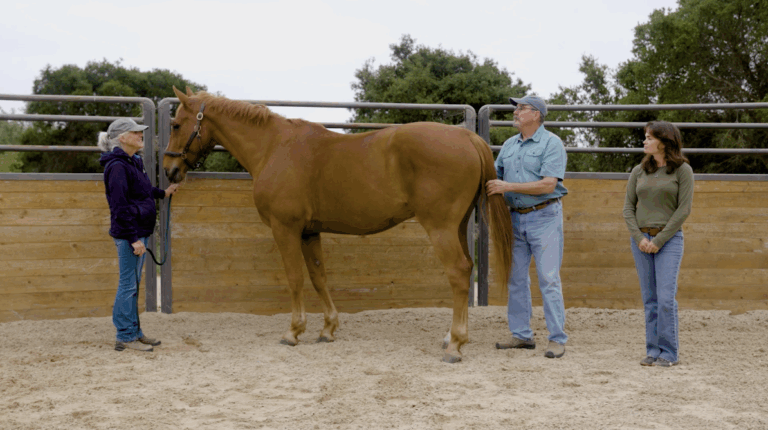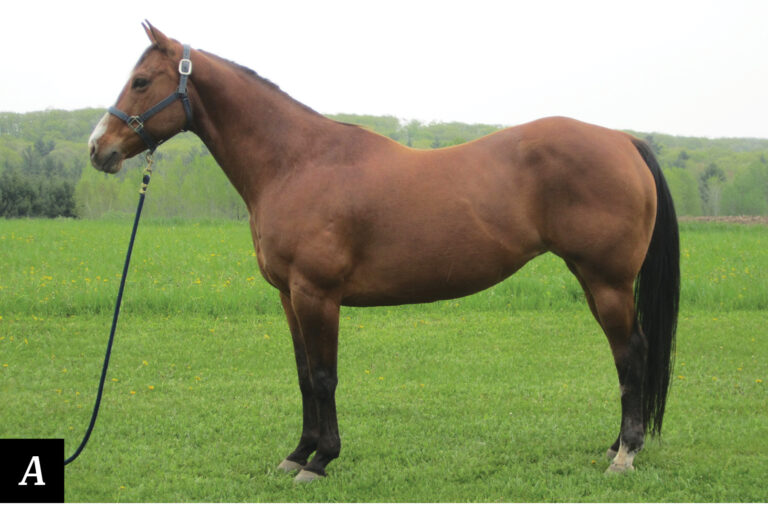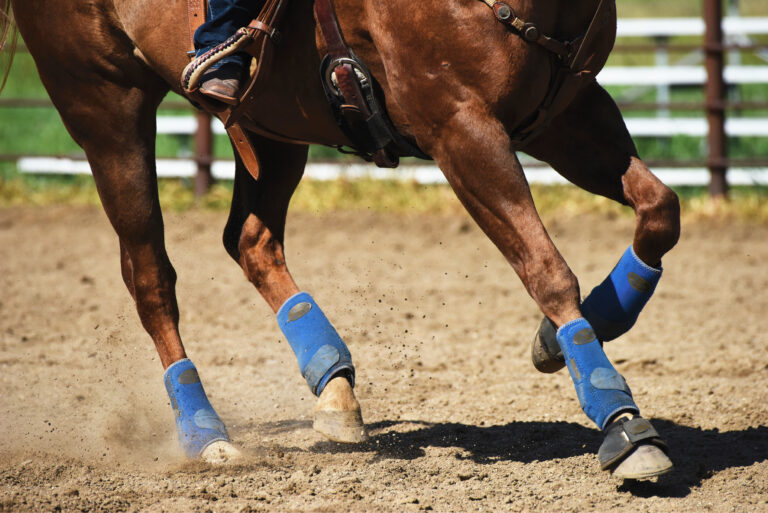Horses live longer these days, so their teeth must keep working longer, as well. For that to happen, your horse needs proper dental care throughout his life. Here’s what to know.
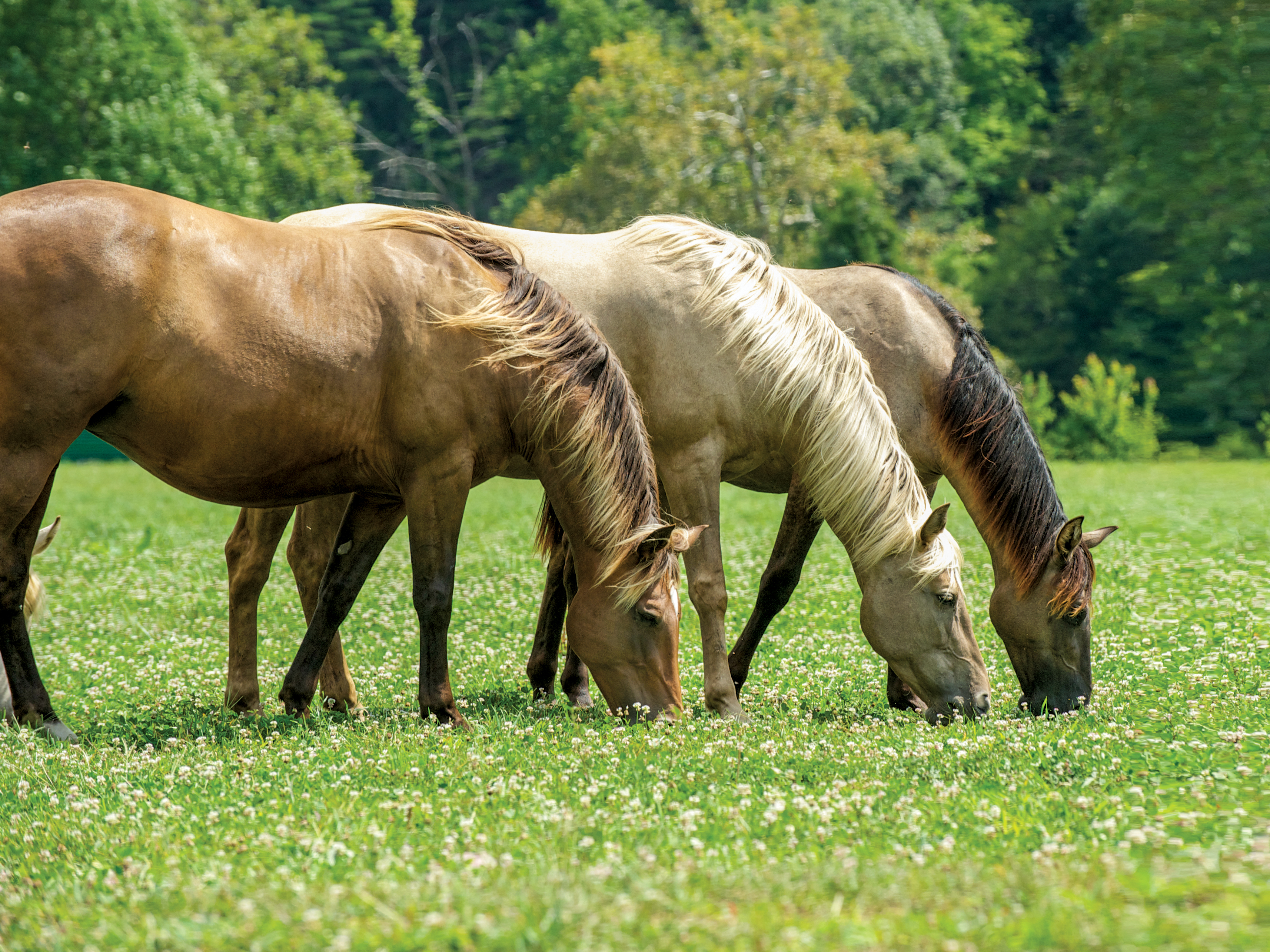
Kristen Warning
What Can Go Wrong?
We used to think the sharp enamel points that can develop on the cheek side of the top teeth and the tongue side of the bottom teeth were the only dental issue to worry about. These points make chewing painful and can create ulcers in the cheek and tongue. Though points are still the most common problem, we now know the overall proper function of the teeth and soft tissues of the mouth are also of vital concern. Horses’ teeth continue to grow and wear down most of their lives, and abnormal wear patterns can create unnatural tooth configurations. These include:
• hooks (one tooth grows uninhibited);
• step mouth (excessive length in a cheek tooth);
• wave mouth (an uneven surface to a line of teeth). (For excellent visuals on these and other dental conditions, visit Texas Equine Dentistry at bit.ly/HorseTeeth.)
Signs to Watch For
Warning signs of dental disease include: quidding (dropping partially chewed food), bad breath, food packing within cheeks, tenderness or swelling around the jaw, reduced appetite, head tossing, head shyness, unusual resistance to the bit, and excessive salivating.
Horses are remarkably stoic, however, so you can’t always tell when their teeth or gums are hurting. This is why regularly scheduled dental exams (see below) are so important.
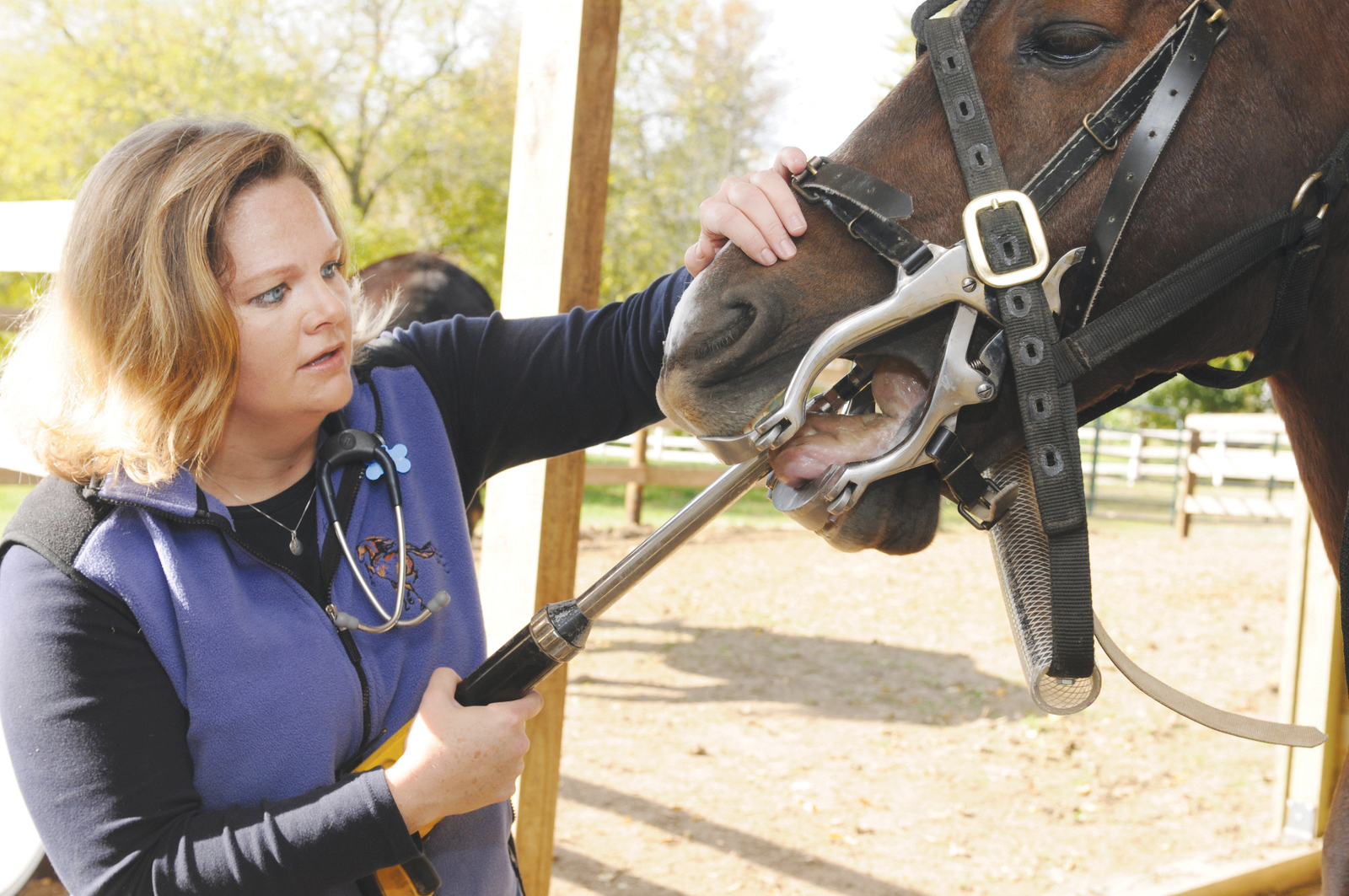
Dental Care Is a Lifetime Need
Regular dental exams should start when a horse is young, to avert issues with caps (baby teeth, sometimes retained too long) and wolf teeth (incisors, painful when unerupted). Indeed, throughout your horse’s life, prevention is the key to dental health. Having his teeth checked and floated (sharp points filed down) every six to 12 months will keep small problems from creating larger ones. He’ll need extra watchfulness over his teeth as he ages, too, as periodontal (gum) disease can also develop.

